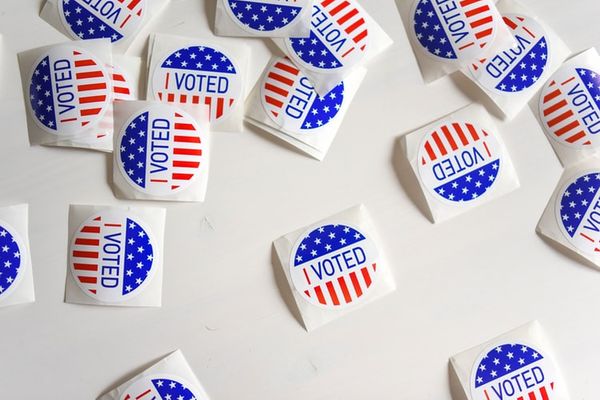According to the Princeton Review, Furman has the second most politically active students of any college in the country, behind only Pitzer College in Claremont, CA. And yet in 2016, only 30% of Furman students voted — well below the 50% national average for college students. These Princeton Review rankings are “based on student ratings of their own levels of political awareness.” Clearly, Furman students think pretty highly of our own political engagement, but we don’t turn out to vote.
In contrast, it is hard to overstate how much the late civil rights hero John Lewis believed in voting. The consequences of that belief were etched into his body. He risked death, was brutally beaten, and was jailed more than forty times, in large part to ensure that Black Americans and other minorities could gain access to the ballot box and participate in democracy. His passion for the franchise did not end with the passage of the Voting Rights Act in 1965. Instead, it continued unabated until the day he died. From a historical perspective, democracy is rare. It is neither inevitable nor guaranteed. But John Lewis believed it was a gift, something to be cherished and stewarded in a spirit of nonviolence and hope but also of serious moral clarity.
Young people in general — and apparently Furman students specifically — don’t feel the same way. True, there is more to being politically active than just voting. It is important, and increasingly difficult, to be an aware and informed citizen advocating for issues that you care about. Activist Deray Mckesson talks about voting as just one tool in the toolkit of citizenship, and thinkers ranging from Yuval Levin to Noam Chomsky share the same basic perspective. Seeking the common good is an expansive activity, something that should be pursued in day-to-day work and service, not just in a voting booth. That said, it’s all too easy — and a great risk — to use such arguments to minimize the importance of voting.
I’m not here to tell you that your individual vote will swing an election. It almost certainly won’t. In fact, “rational choice models” are unable to explain voter turnout without some variable that accounts for feelings of civic duty. Self-interest and personal preference are not enough. But while an individual vote is miniscule, a handful of votes can have profound policy consequences, especially at the local level. Even if the policies in question do not have a direct impact on your life, they might matter a lot to the well-being of your neighbors. To vote is to recognize that you are part of a community bigger than yourself.
Immersed in academic pursuits and life in the campus bubble, Furman students share a lot of privileges. But the same opportunities that enrich our college experience too often detach us from the larger Greenville community as well as our hometowns. Perhaps this explains why we are so much more cynical and jaded than John Lewis, who himself had every reason to abandon faith in democracy. To escape this cynicism, we need a moral framework that extends beyond partisan politics. The upcoming election provides just one of many opportunities to put that kind of framework into practice and actively participate in civic life.
As The Paladin has reported, Furman’s student athletes have been proactive leaders in our community advocating for racial justice, including registering to vote and encouraging others to do the same. We should all be following their example. Register today. Make a plan. Seek out reliable information. Utilize resources like Dins Vote, Furman’s student-led, nonpartisan voter registration effort. Let’s prove the cynics wrong and live up to the standards we set for ourselves.
